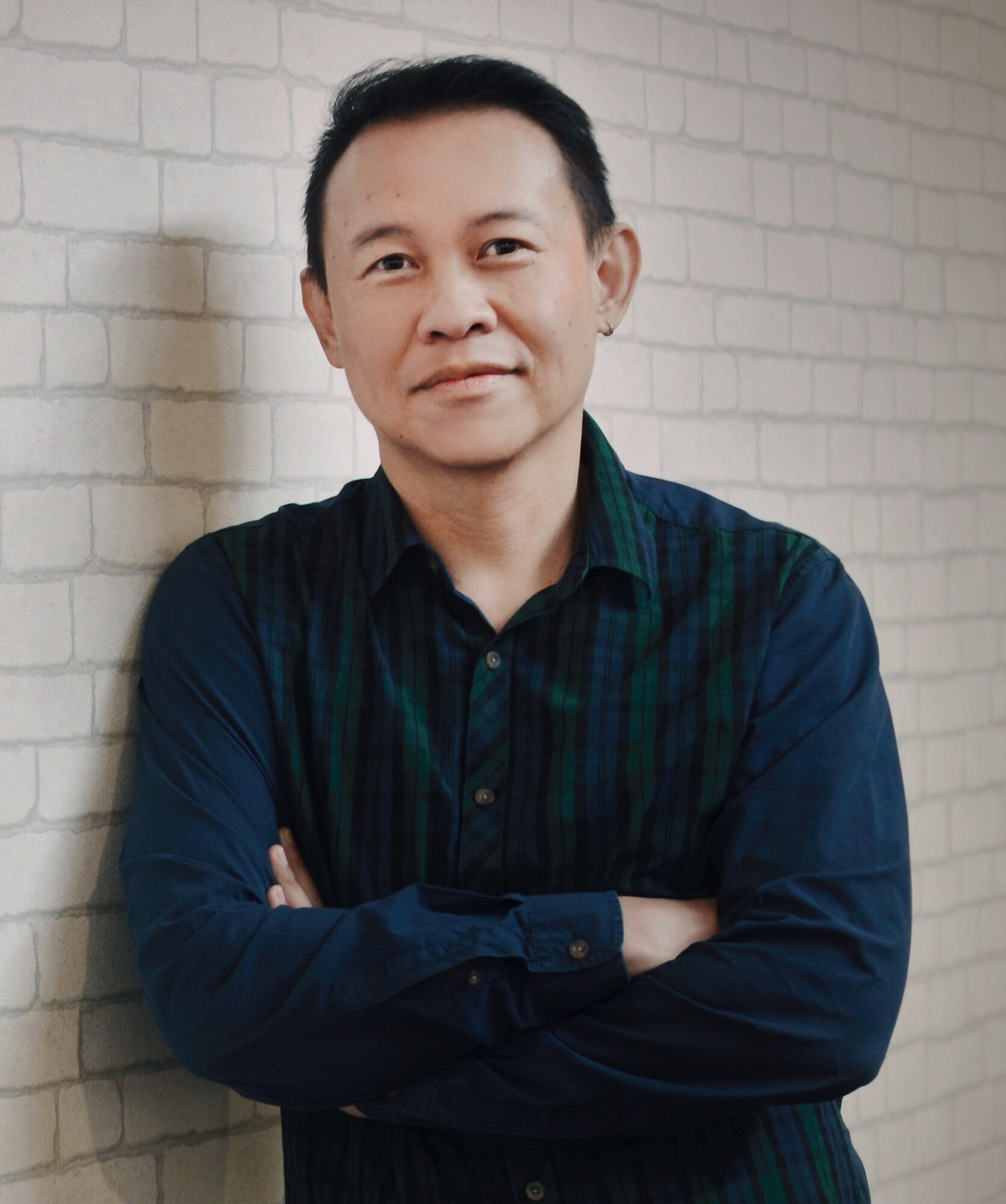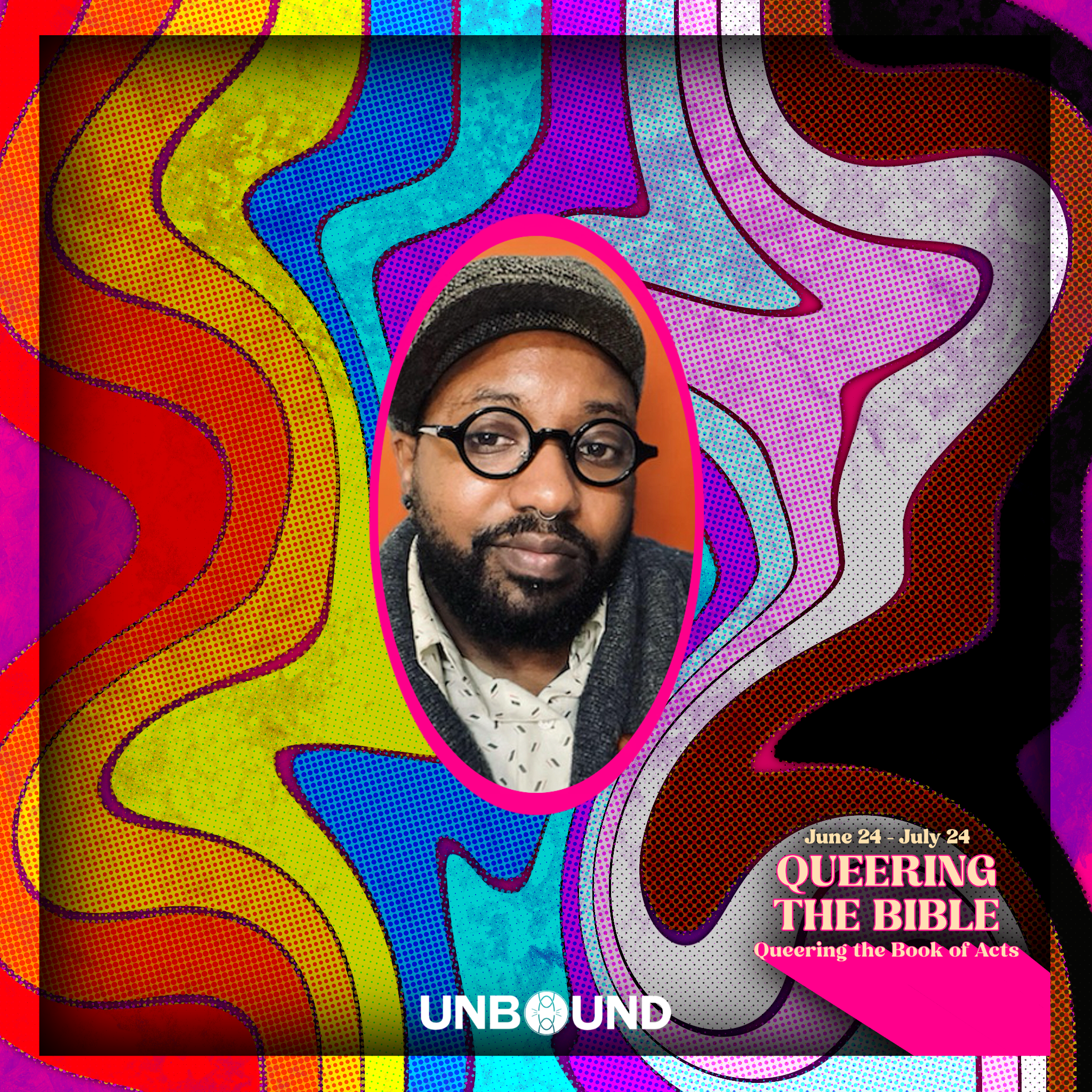A Meeting of Two Worlds
Acts 10 has always been an intriguing piece of scripture for me. As a Malaysian teenager, I remember leafing through a colourful comic book bible which depicted this huge sheet with all kinds of haram or forbidden animals and reptiles and birds being lowered down to Peter, who was then commanded to kill and eat them all! Truth be told, the image was nothing short of disgusting for me and I wondered how such revolting imagery could exist in a sacred book. Oddly, this story also endeared me to the bible because it manifested whimsicality, boldness, rawness, earthiness and humanness within a faith system that I had thought demanded the strictest forms of piety and decency from me. As a much older individual now who continues to explore the deep caverns of (transgressive) gender, (unorthodox) sexuality and (borderless) theology while wielding the flaming torch of an open mind and heart, I still love the liturgies and the devotions and the sacraments, but I have also grown to love the wonderful weirdness, the serendipitous strangeness and the quirky queerness of my faith journey.
Today, Acts 10 explodes with so many layers of meaning for me beyond the usual interpretation of God’s desire for the message of Christ to go beyond the Jewish people and find a home in the Gentile community. What would happen, I wonder, if I concentrated on reading Acts 10 as a pertemuan dua dunia or meeting of two worlds? What if I envision the chapter not merely as a Gentile person’s desire for God’s acceptance in Christ through the mediation of a Jewish/Christian person, but as an awkward meeting of two realities? What if I reimagine the identities of the main characters of this chapter? What would such a queer approach yield?
Simon who is called Peter, is living with Simon the Tanner. Peter is a Jew and a follower of Christ. I like to think of Peter as a trope for the conflicted LGBTQ+ Christian. Perhaps these two Simons are really just one Peter with mixed feelings about being LGBTQ+ and being Christian. One Simon attempts each day to ‘pray the LGBTQ+ away’ each day. The other Simon engages in a gamut of meaningful expressions that reveal a productive, life-giving synergy between his gender, sexuality and faith. The self-loathing and self-invalidating Simon who is repeatedly bombarded with messages of being profane and unclean from pulpits struggles to believe in a God who tells him that what God has made clean, he must never call unclean. The other Simon somehow already intuits that God sees into his depths and embraces him as he is. LGBTQ+ Christians who encounter suspicion and disdain from non-affirming churches often want to have nothing to do with such churches.
Cornelius is a devout and prayerful Gentile who loves God in accordance with the Jewish tradition, but he has now been instructed by an angel of God to do something outside of his comfort zone: to send for Peter who can bring his faith to the next level. He reminds me of the numerous upright and God-fearing non-affirming churches that are deeply and genuinely invested in God. These churches constantly try to discern the will of God in matters involving LGBTQ+ people, yet create and succumb to the road blocks of clobber texts, theological face-saving and cultural respectability which they themselves have built and by which they find themselves bound. Sometimes, in entrenching themselves in the idea of being the last bastion against an imagined tide of ‘intrinsic moral evil’ and ‘gender ideology’, churches can remain stagnant in an invented triumphalism of possessing what they perceive as the fulness of truth, or they can adhere even more strongly to the false security of a hallowed tradition of cisheteronormativity. They easily overlook the fact that God has already responded to them by saying: ‘Send for Peter, listen to him’. They refuse to engage in dialogue with LGBTQ+ people. Such churches often see themselves as polar opposites of LGBTQ+ communities.
But what if I allow the ‘Peter’ of the world of LGBTQ+ people and the ‘Cornelius’ of the world of cisheteronormative, non-affirming churches to meet? What if the basis of this meeting is what they share in common – a love for God in Christ – rather than on what sets them apart?
The Gentile Cornelius invites the Jew/Christian Peter to his home and Peter accepts. What if non-affirming churches invite LGBTQ+ Christians to share how God operates in their lives? A friendly and sincere gesture by churches for LGBTQ+ Christians to speak in their spaces is one that LGBTQ+ Christians welcome, not because it allows them to state their case in some kind of arraignment, but because they know that they are already part of these churches that have been keeping them at arm’s length. They are reclaiming rightful spaces from which they have been excluded. They do not crave acceptance through justification or conformity – they wish to come as they are, laden with experiences of life and God to enrich these churches. Peter resists the way in which Cornelius falls at his feet in worship. LGBTQ+ Christians do not wish to be fetishised, tokenised and emblemised in the name of ecclesiastical equity, diversity and inclusion, just as they reject any kind of pastoral condescension and pity. They ask that they be accorded the same respect and dignity as any follower of Christ, and that they be acknowledged as LGBTQ+ people with talents and gifts, not despite being LGBTQ+ people.
Yet at Caesarea, it is not only Peter who talks. Cornelius speaks and Peter listens. Peter speaks and Cornelius listens. It is only when both parties readily engage in dialogue that Peter launches into a kerygmatic proclamation. Peter does not speak out of arrogance, but in obedience to a divine mandate. He talks of a God who is impartial. He mentions those who witness to and proclaim the workings of God in their lives. He shares intimate experiences of communing with God in the everyday. LGBTQ+ people are willing and eager to preach and testify, to reveal the manifold ways in which they allow their genders, their sexualities and their faith to converge, sometimes in haphazard and disruptive ways, sometimes seamlessly and uninterruptedly, often through a curious mixture of both. It is in sorrow, unruliness, eccentricity, nonconformity, contradiction and the unusual, as well as in joy, orderliness, predictability, plainness and commonness that LGBTQ+ people find God. But they will share this part of themselves only if they are invited to speak and allowed to feel comfortable in their own house.
The Spirit falls upon all those who find themselves in this meeting of two worlds. Perhaps there are debates, arguments, misunderstandings, disagreements and ambivalences, as well as hearty agreements and rousing acclamations. The Spirit works through these very human dynamics. At Caesarea, Cornelius’ vision and Peter’s trance embrace. Their dreams of including and being included are steadily brought into existence because they speak and listen to each other. Cornelius and his kin no longer think of themselves as outsiders in a LGBTQ+ community. Peter and his entourage no longer think of themselves as outsiders in a Christian community. Those who think of themselves as ‘insiders’ learn that those whom they have branded as ‘outsiders’ are gifted with the Spirit. Both parties speak in tongues of mutual respect and understanding, and in so doing, give praise to God and are acceptable to God. They learn that their common love for God in Christ can be brought to the next level. This pertemuan dua dunia is infused with an experience of God that expands rather than fractures both parties. It is a meeting of two worlds in which God’s unqualified love is explicitly reflected in all God’s people.

Joseph N. Goh (he/they/any) is a Senior Lecturer in Gender Studies at the School of Arts and Social Sciences, Monash University Malaysia. He holds a PhD in Arts (gender, sexuality and theology), with research interests in queer and LGBTI studies, human rights and sexual health issues, diverse theological, spirituality and religious studies, and qualitative research. Goh is the author of numerous publications, including Doing Church at the Amplify Open and Affirming Conferences (2021), Becoming a Malaysian Trans Man (2020), and Living Out Sexuality and Faith (2018). He owns a personal website at https://www.josephgoh.org/



Unbound Social